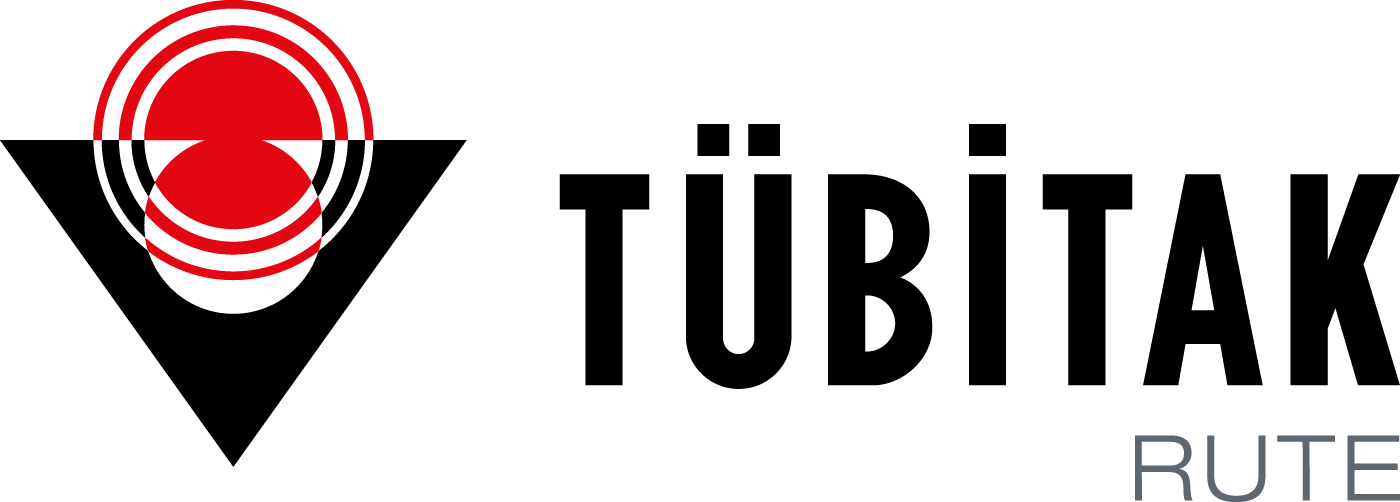R&D
Electric Vehicle Technologies Department
The Electric Vehicle Technologies Department of TÜBİTAK RUTE conducts significant research in various areas of the rail transportation sector, encompassing Vehicle Control Systems, Hardware Design Group, Electric Machines Group, Power Electronics Group, and Mechanical Design and Analysis Group. The Vehicle Control Systems Group focuses on developing a comprehensive system integrating electronic systems for rail vehicles, with a particular emphasis on Train Control and Management Systems. The Hardware Design Group responds to electronic hardware needs with high technology and secure systems, while the Electric Machines Group designs propulsion motors and electric vehicle traction systems for various rail transport platforms. The Power Electronics Group engages in prototype production and testing by designing traction systems and auxiliary power units for rail transport platforms. The Mechanical Design and Analysis Group continues its work, targeting high safety and performance standards through detailed processes ranging from vehicle body design to collision analyses. These groups collaborate interactively on industry-specific projects, sharing their knowledge and expertise.
- Purposes
- Working Areas
- To develop domestic resources that meet the needs of our stakeholders, are in compliance with international standards, scalable, flexible, and cost-effective.
- Central (Vehicle) Control Unit
- Control/command scenario design and applications
- Human Machine Interfaces (HMI)
- Train Communication Network (TCN - IEC61375)
- Ground central station communications with GSM
- Event Recorders and Maintenance & Analysis Software
- Rail vehicle simulation software
- Development of asynchronous railway traction motors
- Development of traction motors for electric vehicles
- Development of hydrogen generators for power plants
- Development of CER/traction converter
- Development of auxiliary power unit
- Design and optimization of power electronics systems
- Development and simulation of traction control algorithms
- Development of traction control software
- Development and simulation of auxiliary power unit control algorithms
- Development of auxiliary power unit software
- Traction Control Unit (TCU) Hardware Design, Development and Testing
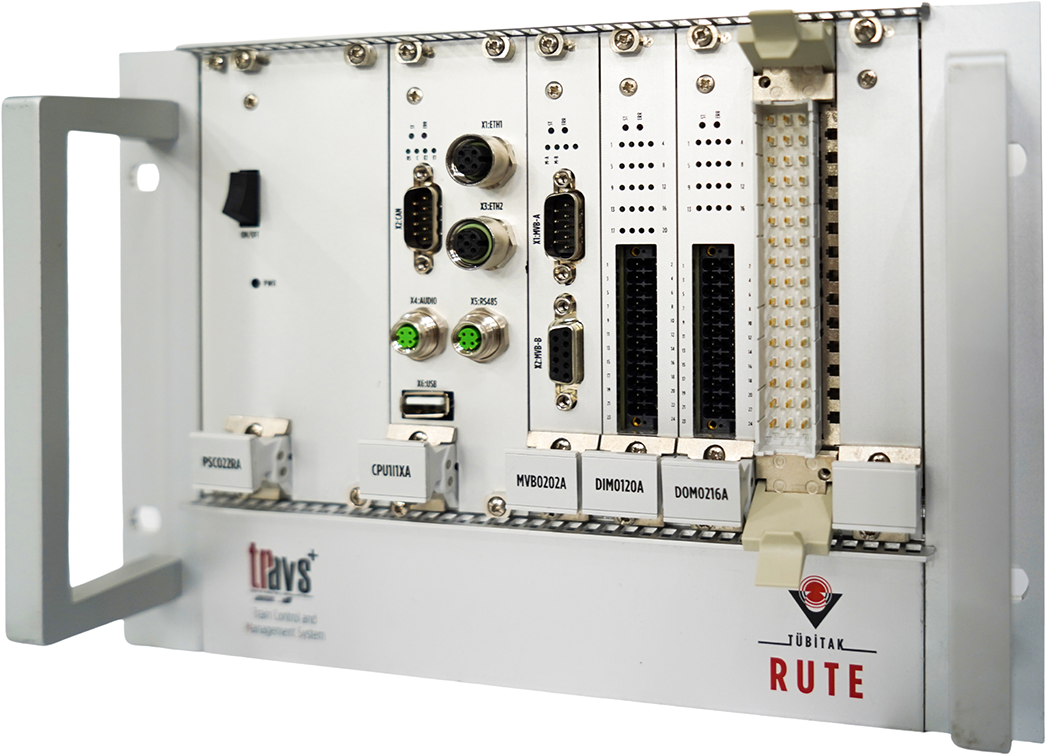
Traction Control Unit (TCU)
Developed in compliance with EN50121 and EN50155 standards, the Traction Control Unit (TCU) performs traction system control, protection, recording, and communication functions using electronic cards where FPGA, DSP, and MCU software are executed.
- Fiber Optic Input-Output Control
- PWM Generation and Control
- Traction Control and Protection
- Analog and Digital Interface Signals Control
- Communication and Recording Unit
- Power / Backbone
The electronic design, production, and testing of modules are carried out within the Hardware Group.
- Train Control Management System (TCMS) Hardware Design, Development and Testing
RIOM - Remote Signal Input Output Module and VCU - Vehicle Control Unit
Developed in compliance with EN50121 and EN50155 standards, the RIOM – Remote Signal Input Output Module and VCU – Vehicle Control Unit are electronic hardware components that enable centralized control with advanced technology software for all train subsystems.
- Central Control Module
- Analog Input Output Module
- Digital Input Output Module
- Communication and Recording Unit
- Power / Backbone
The electronic design, production, and testing of modules are carried out within the Hardware Group.
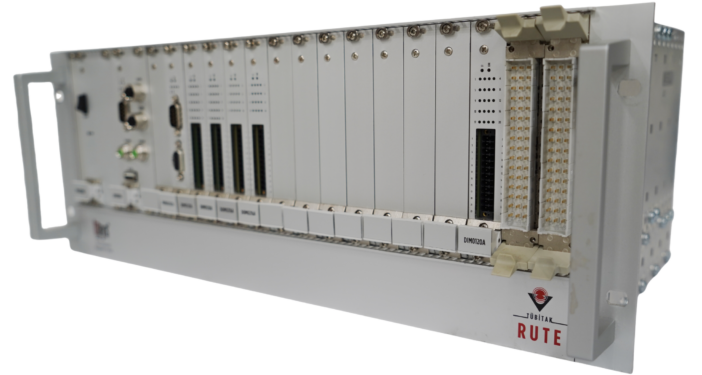
Embedded Software Development
The embedded software executed in the programmable units of our hardware is developed according to internationally accepted software life cycles. Activities such as generating software requirements, implementing requirements, integrating and testing outputs, and developing algorithms in accordance with test scenarios for the relevant hardware are conducted. This encompasses version control, quality control, and documentation production for the respective software. In this context, activities are carried out in the following subjects:
Bare-Metal Software Applications:
- ARM Cortex-M based microcontroller (MCU) software,
- Serial communication interfaces, appropriate software protocols (CAN, SPI, I2C, RS-485...),
- Wireless communication protocols (GSM/GSMR, GPS, Wi-Fi),
- Real-time operating system (FreeRTOS),
- 3rd party libraries (lwip, ff ...).
Embedded Linux Applications:
- Appropriate configuration of the Yocto Linux distribution to the relevant hardware modules (System on Module, SoM),
- Module hardware interfaces and related Linux driver libraries,
- Interprocess communications (Interprocess Communication, Shared Memory).
Embedded software, along with the external interfaces of the hardware, performs communication between sub-modules, data logging, monitoring safety signals, and many hardware control tasks in real-time through the real-time operating system (FreeRTOS).
Vehicle Body Design
Taking into account the Technical Specifications for Interoperability (TSI) and the requirements set by customer organizations, the following activities are carried out for the vehicle body:
- Sizing
- Preliminary Analysis
- Concept Design
- Detail Design
- Preparation of Manufacturing Files
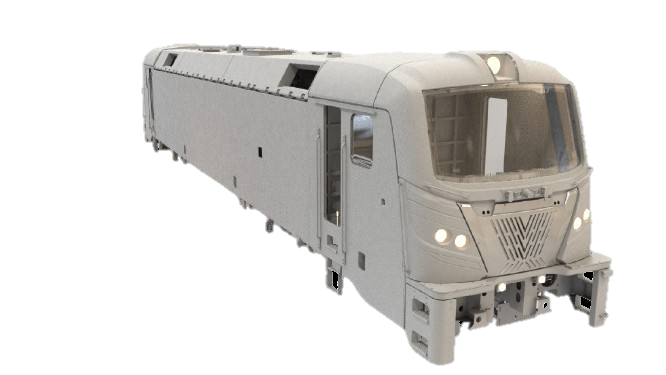
Vehicle Body Static Analysis
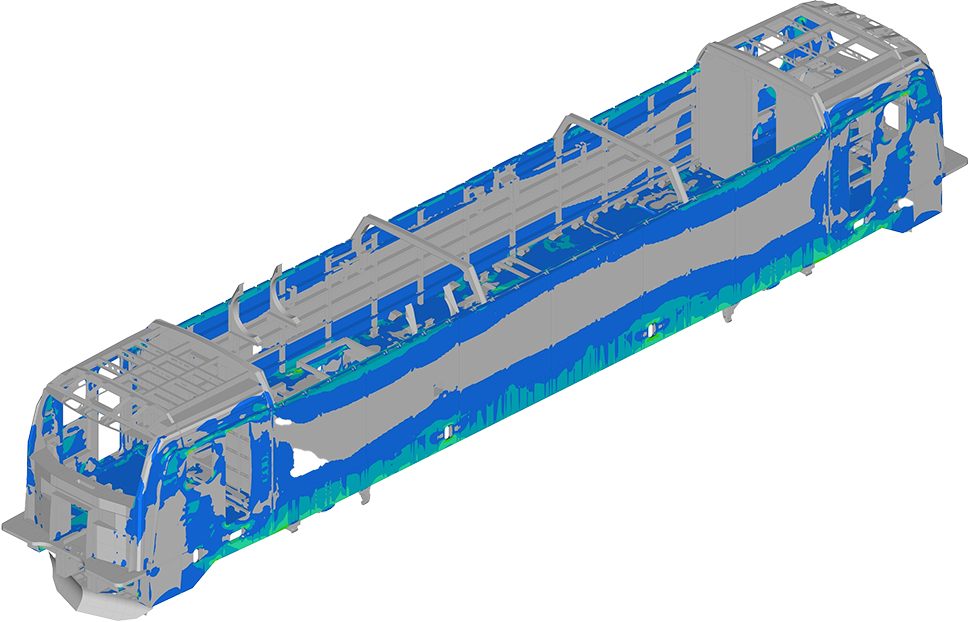
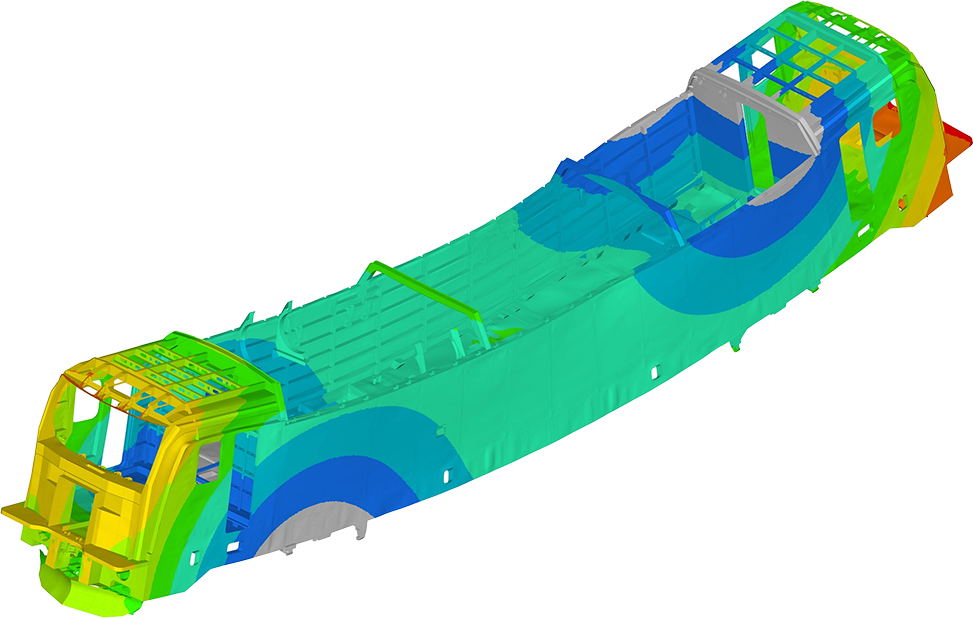
Vehicle Body Crash Analyses
In accordance with the Technical Specifications for Interoperability (TSI) and the requirements set by customer institutions (EN 15227), collision simulations are conducted for the vehicle body under various scenarios. The designed vehicles are evaluated to ensure that they provide sufficient survival space for the train operator and other users during these simulations.
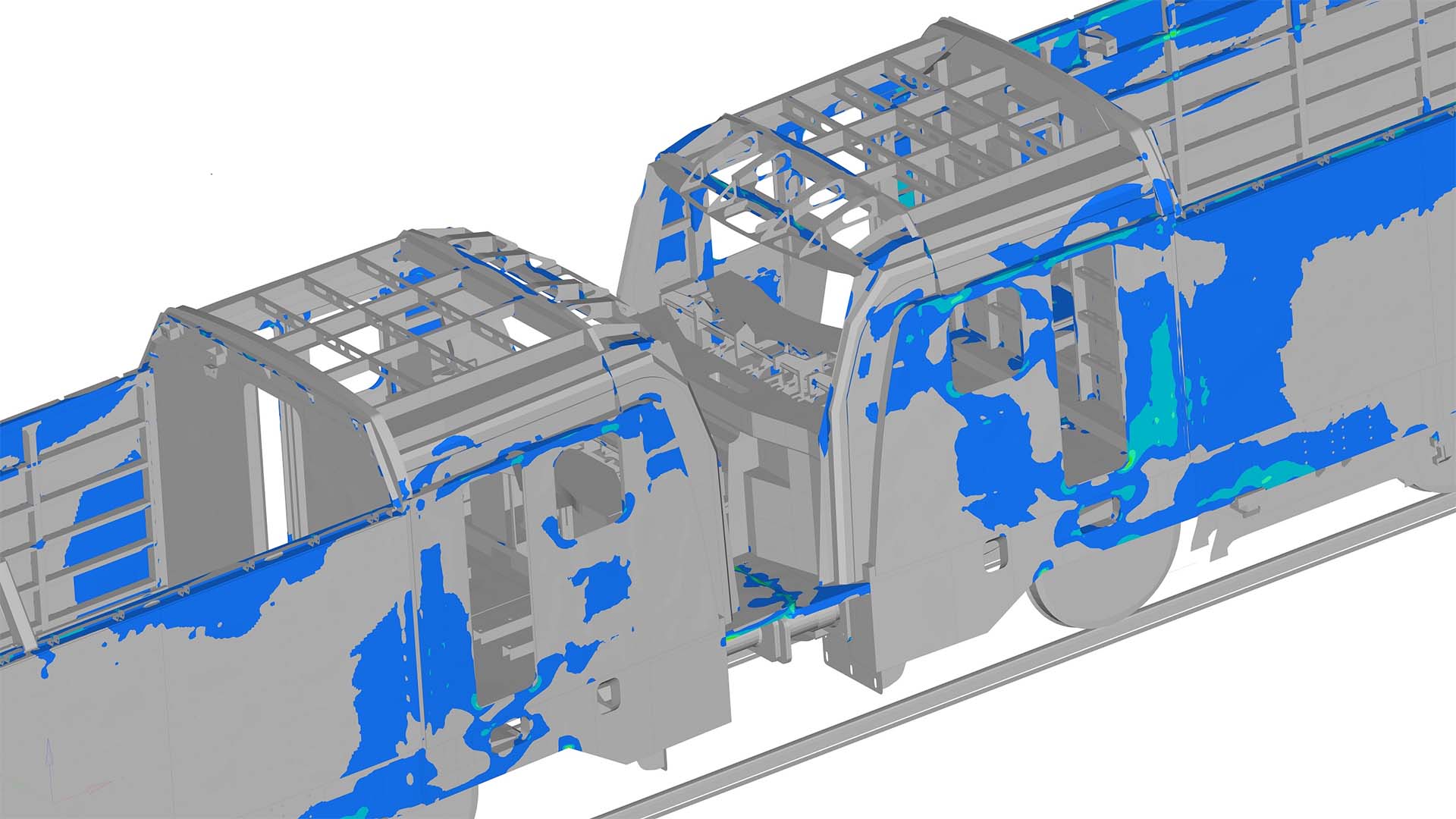
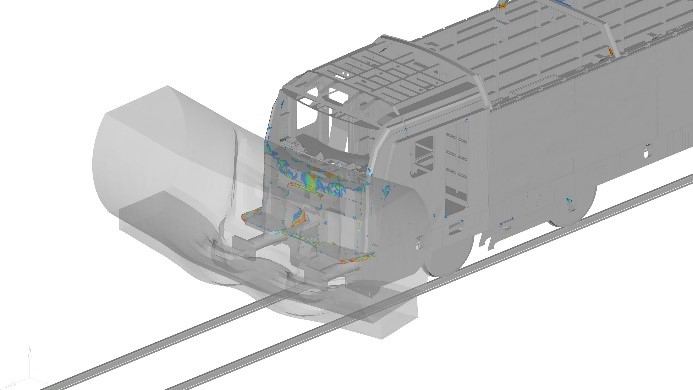
Bogie Design
- Sizing
- Preliminary Analysis
- Concept Design
- Detail Design
- Preparation of Manufacturing Files
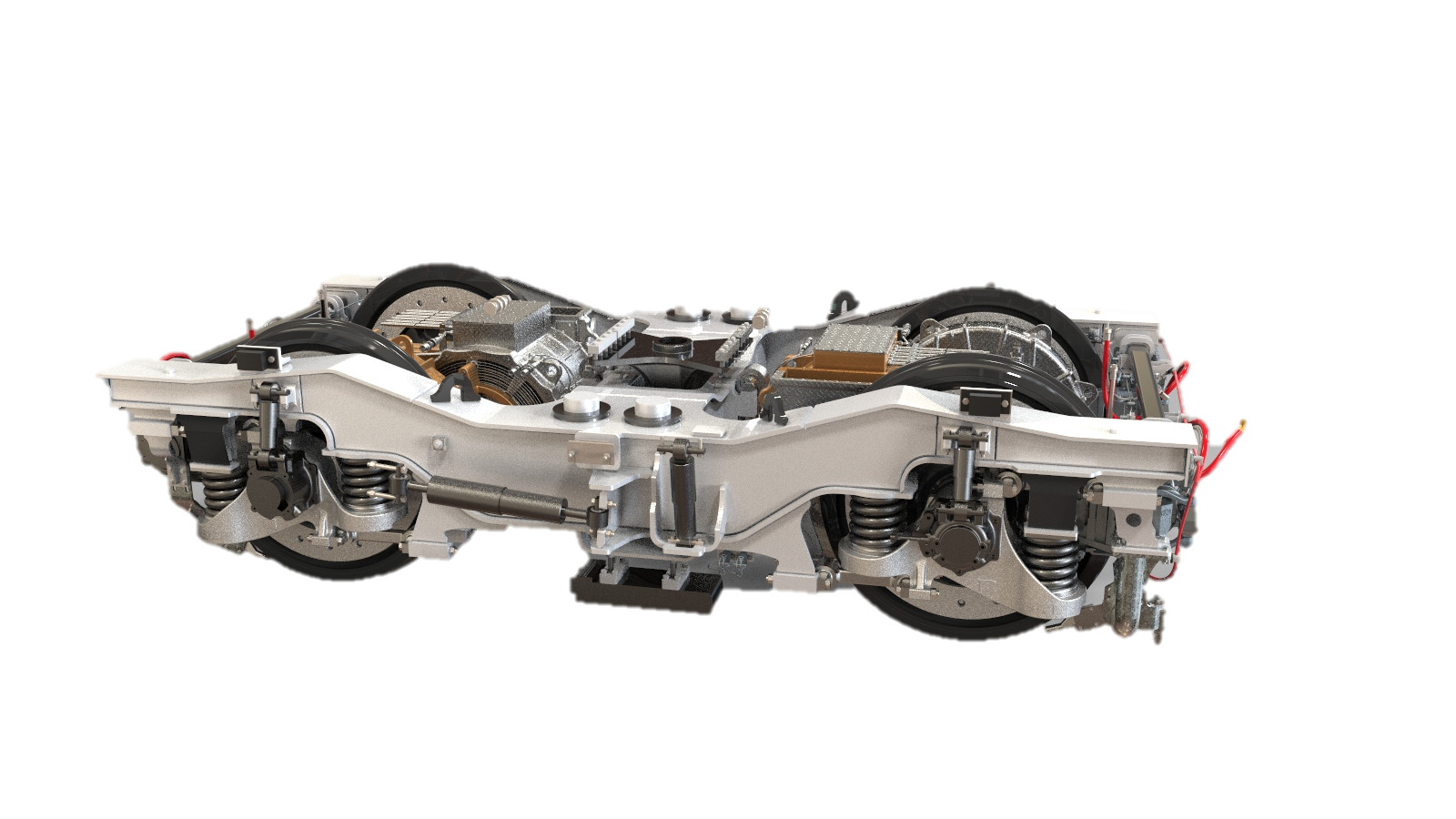
Bogie Static Analysis
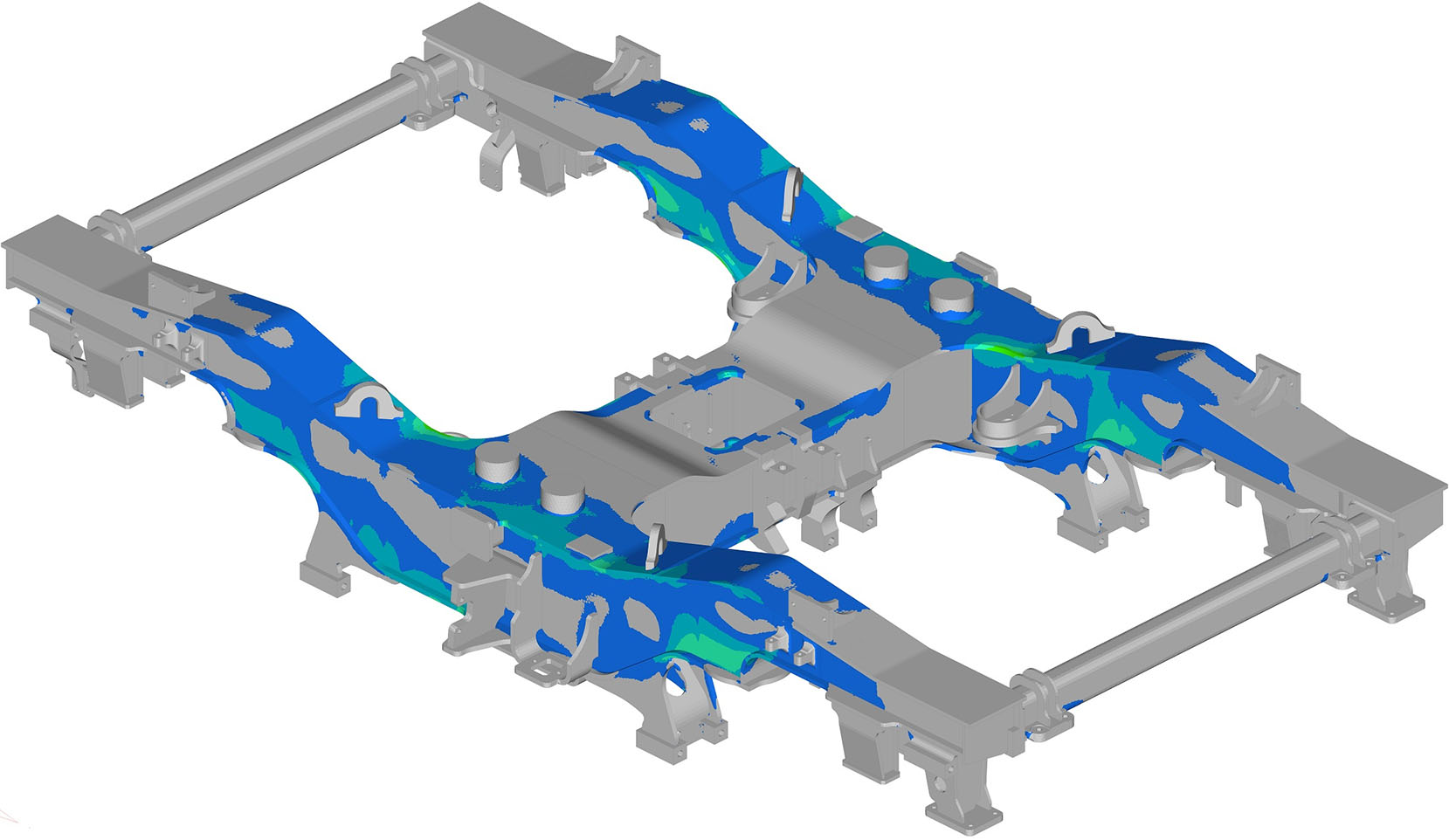
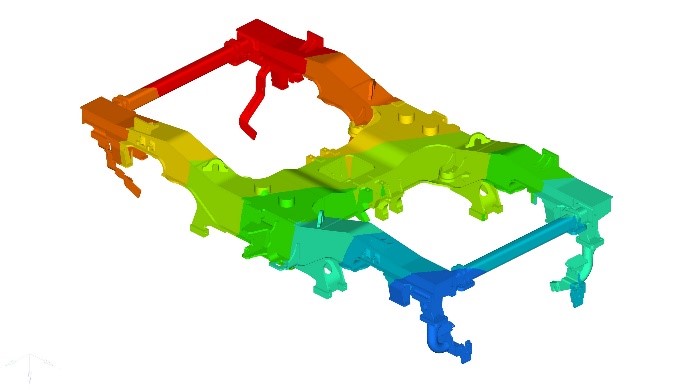
Bogie Fatigue Analysis
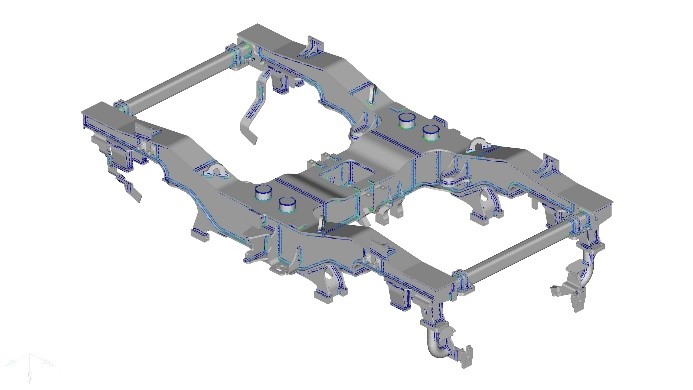
Gabarit Analyses and Kinematic Analyses
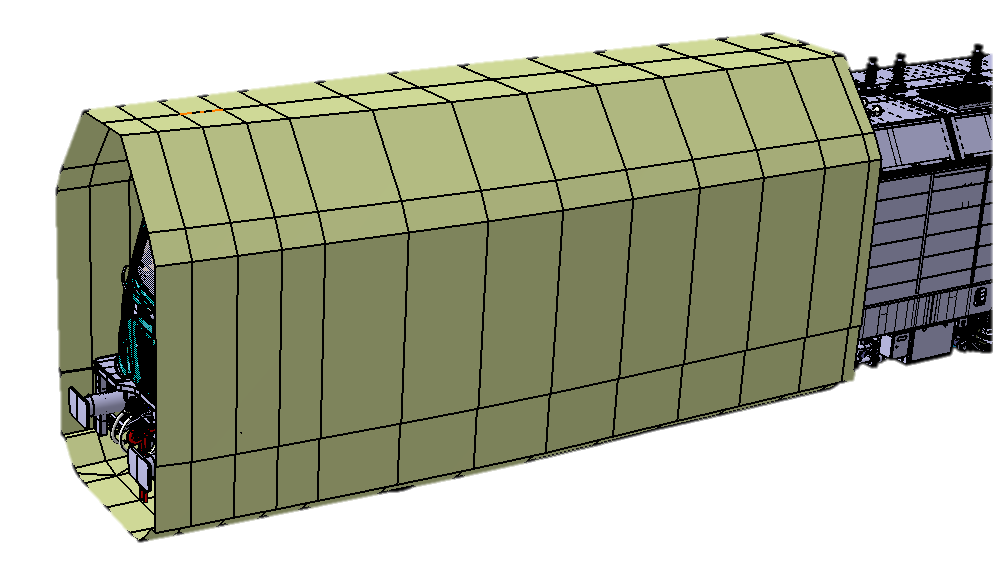
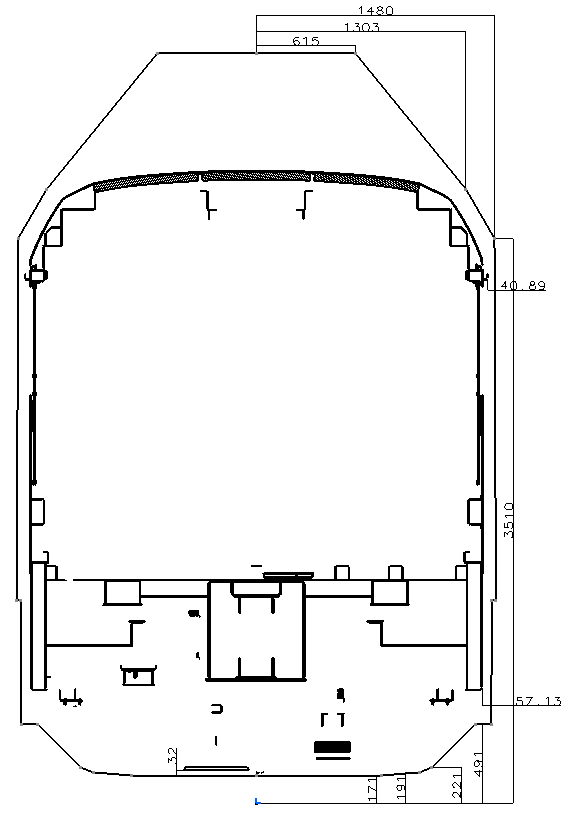
Vehicle Dynamics Analyses
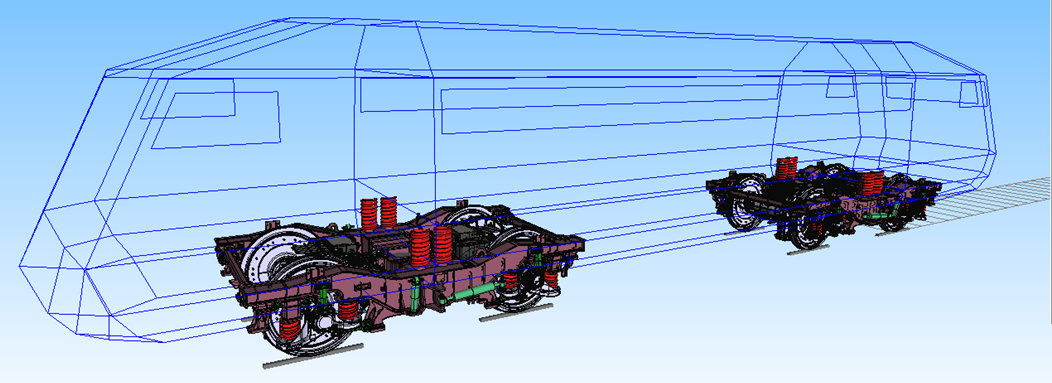
Mechanical Design and Analysis
Within the scope of Mechanical Design and Analysis, activities are conducted for projects undertaken by the Institute in the following areas:
- Mechanical Design
- Control-free Mechanism Design
- Electrical and Control Cabinet Mechanical Design
- Cooling System Design and Sizing
- Preparation of Manufacturing Files
- Strength and Life Analyses
- Vibration, Shock and Natural Frequency Analyses (EN 61373)
- Dynamic Analysis (Explicit)
- Multi-System Dynamics Analyses
- Fluid Dynamics Analysis
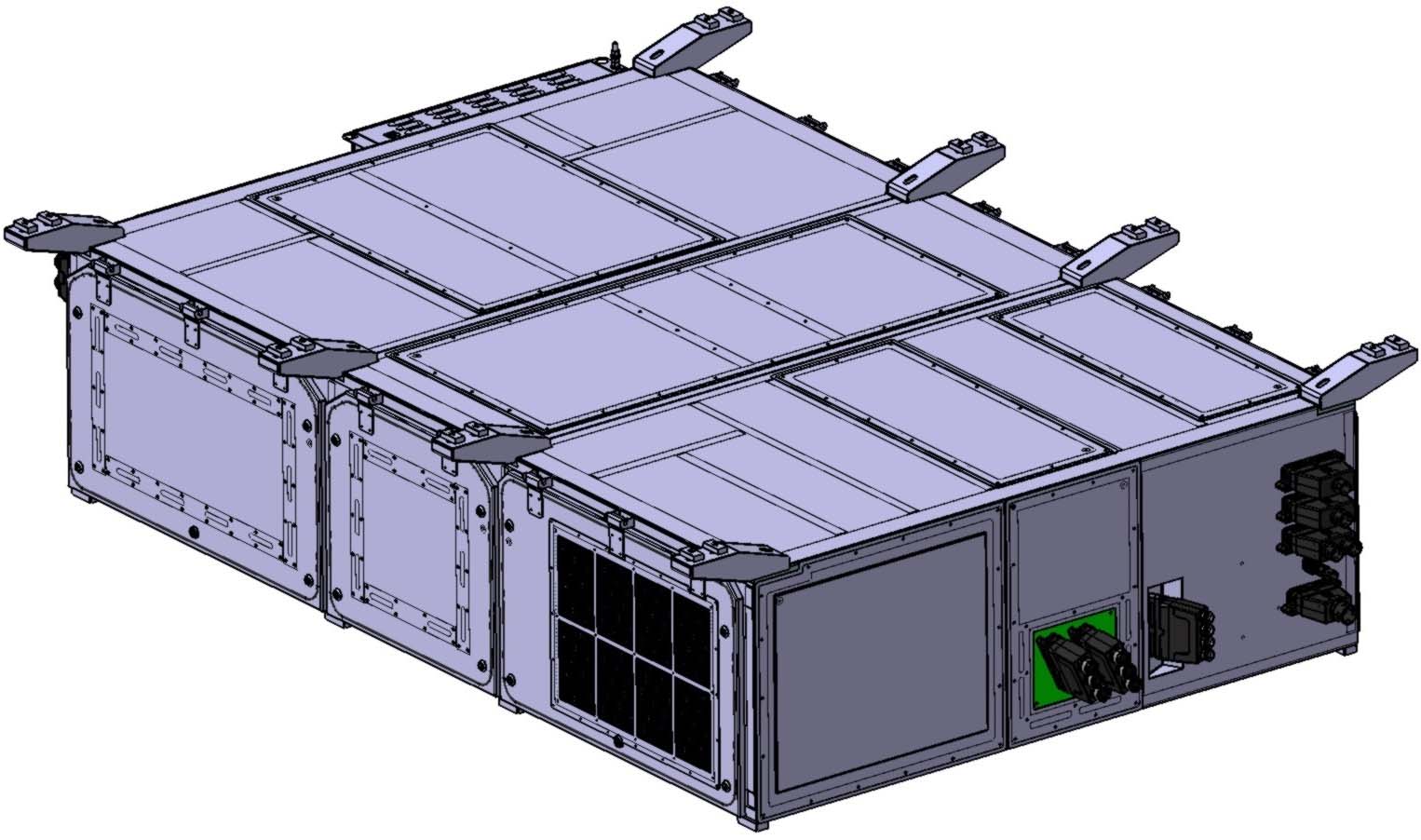
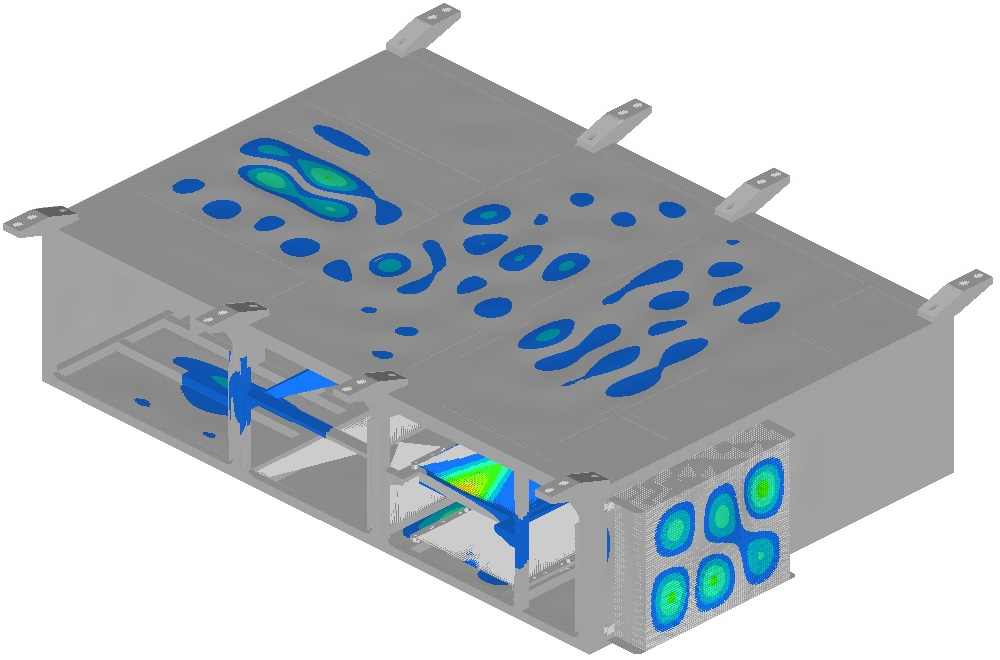
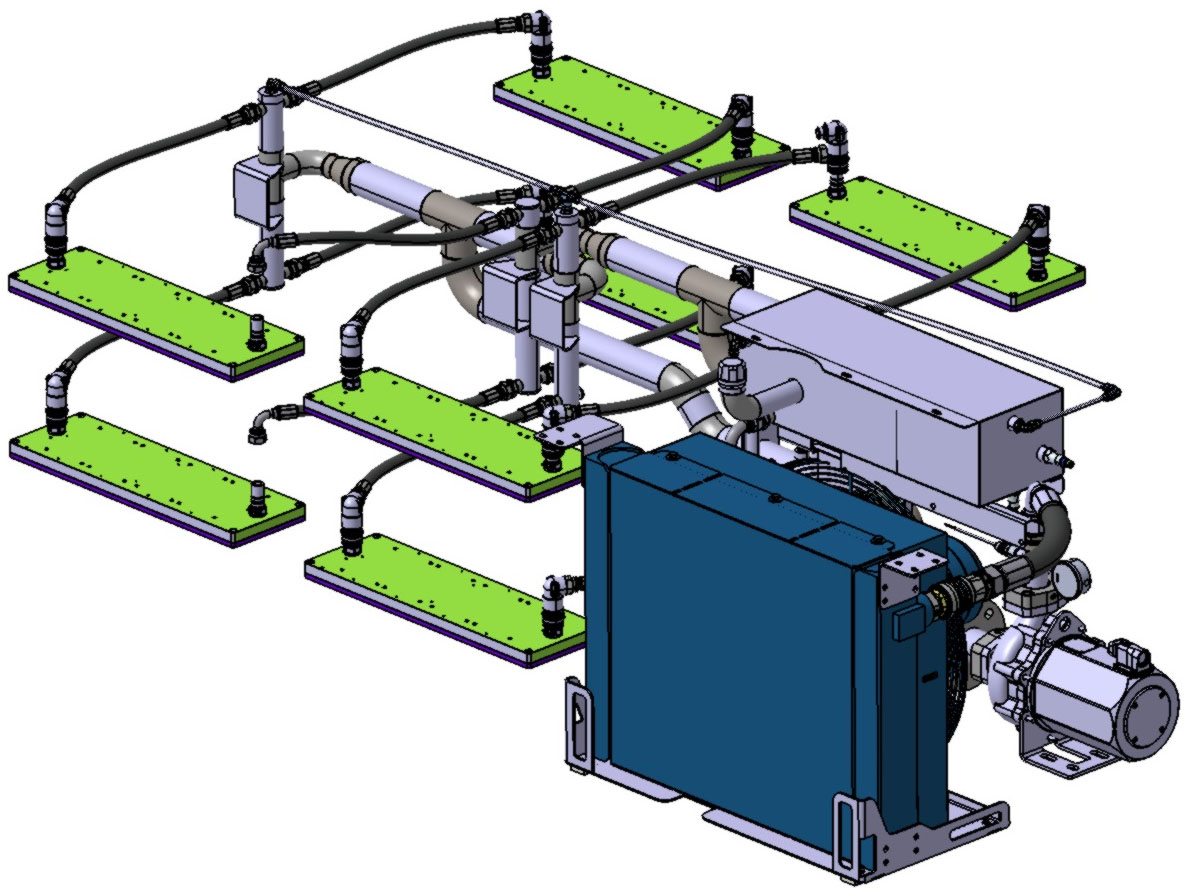
R&D
Infrastructure / Technical Specifications
- Power Electronics Laboratory
- Power Electronics HIL (Hardware in-the-loop) Test Environment
- 4-channel, fiber-optic isolated gate driver adapter
- 30kW, 90 l/min capacity water cooling station
- 50kW, 4,000VDC power supply
- 4-channel, 1MHz, Oscilloscope
- 6kV differential voltage probes
- 6kA current probes
- 400VAC/1.350VAC Transformer
- Licensed power electronics simulation program
- Licensed PCB design program
- Various DSP, Microcontroller and FPGA development kits, programmers and debuggers
R&D
Projects / Products
- TRAYS – TÜBİTAK Rail Vehicle Management System (E1000, E5000, Gaziray Commuter Train, and National High-Speed Train)
- Development of Traction System for Diesel Electric Locomotives
- Development of E5000 Type Electric Locomotive
- Traction Control Unit for Diesel Electric Locomotives - TRACS-KP-D
- Development of Traction System and TCMS for Next-Generation Electric Train Sets – YEMU
- Development of Traction System and TCMS for HTS EMU 225
- Development of a Next-Generation Control and Propulsion System for Locomotives
- Development of Traction Motors for Light Rail Vehicles-Trams
- Design and production of 149 kW traction motor for BURSARAY DEUWAG sets
- Development of traction motors for shunting locomotives
- Development of 250 kW traction motor for E1000 electric locomotive
- Development of traction motors for main line locomotives
- Design and production of 1280 kW traction motor for E5000 electric locomotive
- Development of traction motor for commuter trains
- Design and Production of 280 kW Traction Motor for Gaziray Commuter Train
- Development of traction motor for high speed trains
- Design and production of 380 kW traction motor for National High Speed Train
- Development of generators for hydroelectric power plants
- Development of 11MVA Salient Pole Synchronous Generator for MİLHES Project
- Development of generators for wind power plants
- Development of 500 kW Double-Fed Asynchronous Generator for MİLRES Project
- Development of traction motors for electric vehicles
- Development of 30 kW liquid cooled brushless surface magnet synchronous motor
- Development of traction motors for electric vehicles
- Development of 60 kW liquid cooled brushless embedded magnet synchronous motor
- E5000 Electric Locomotive Traction Converter
- DE11000 Diesel Locomotive Traction Converter and Auxiliary Power Unit
- Gaziray Commuter Train Traction Converter
- National High Speed Train Traction Converter and Auxiliary Power Unit

